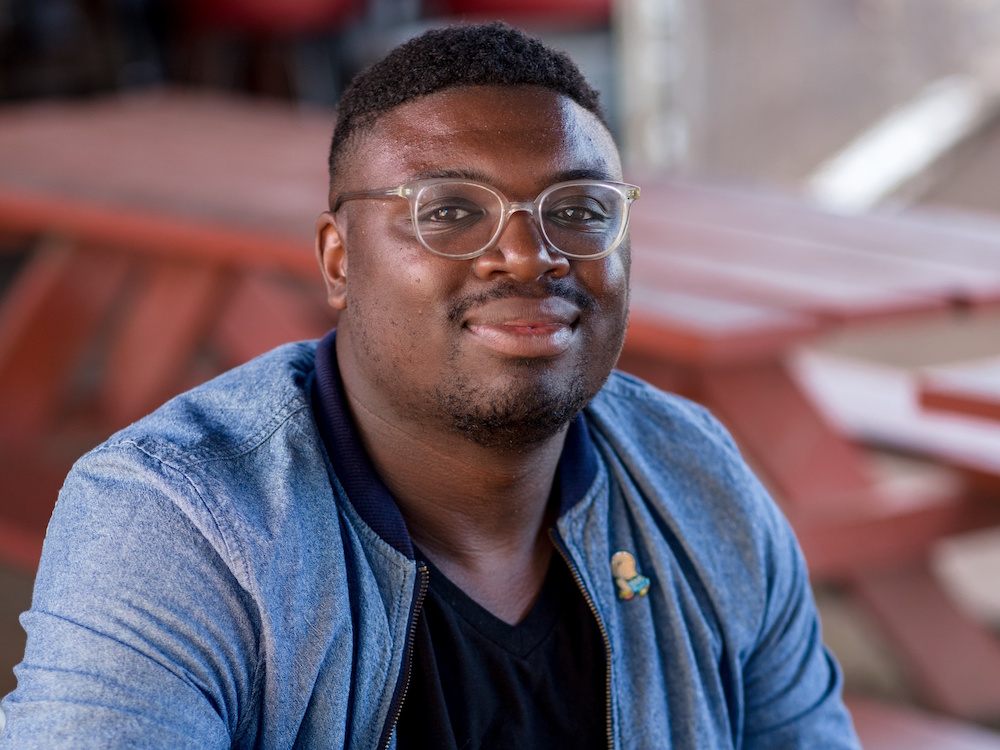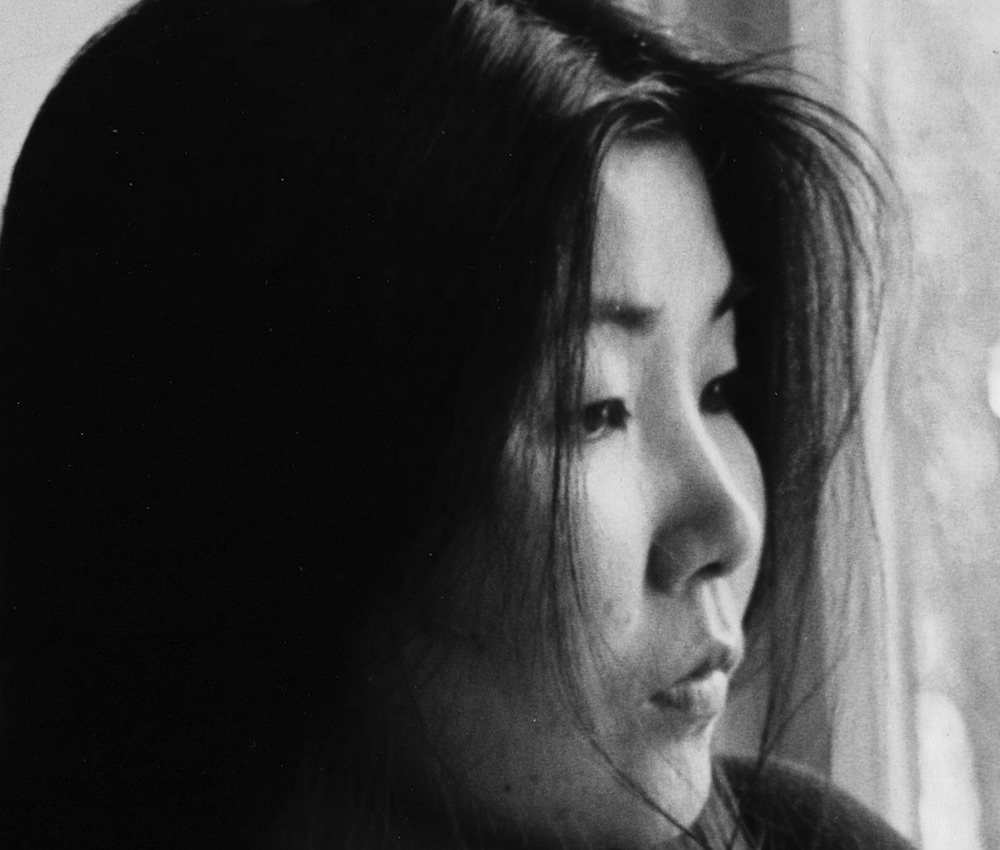There are many ways to cross this country. What my gentleman and I did the first summer of our romance, the September after we graduated, was take three weeks to drive along the northern United States in a sedan with four CDs, little money of our own, and no air-conditioning. By the time we drove down out of the Berkeley Hills, I wondered if he still liked me, much less loved me. The matter of what keeps people together, what makes two people a couple, is one of the central questions of Bryan Washington’s extraordinary new book Memorial, and no one writing today can make an unanswered question as satisfying, as delightful, as moving, or as vibrant. Memorial has the kind of premise for which generations of M.F.A. students would offer lesser-used digits: a young man wakes one morning to the reality of living in a Houston one-bedroom alone with a stranger—his boyfriend’s mother. Things aren’t going great with the boyfriend, who has just flown to Japan, where his estranged father is dying. Washington writes with ease, like a juggler who is adding in new objects all the time, except the book ends with everything aloft instead of in hand. In contemporary fiction, there seems to be an idea that only brutality is sophisticated and only evil is art, but basically all of Washington’s characters are capable of goodness and love. In 2020, that is one hell of a twist. I finished Memorial with a shout after several late-night sessions and handed it immediately to my man, who, it turns out, does still like me. It can be difficult to share your life with someone; Washington somehow explains this anew. Memorial, on the other hand, is easy to share. —Julia Berick
Finally, finally, I got my hands on Danez Smith’s most recent collection of poetry, Homie. Flipping through its pages to see if I recognized any of the titles, I found, for the first time in print, the poem “dogs!,” which I had first seen performed on YouTube at the height of my Button Poetry obsession in 2016. In it, one of my favorite lines of poetry: “i wanted to be the boy who / turned into the bird limp in the / dog’s wet mouth, holding me / toward his human saying I made / this for you.” The whole book can be found in this sentiment: an offering. So much of Danez’s poetry is consumed with the glorious act of giving oneself—to a friend, to a lover, to the self. Often, this act is rapturous and self-destructive, but other times it is gentler, subtler. The poems, then, are tributes. The title, Homie (and its subtitle, which is a nod to the Black camaraderie that is the book’s specific focus), gives the bottom line away. Even in a fistfight—as in the poem “jumped!,” which is about punching and being punched—or while laughing at one’s own creative cruelty—as in “how many of us have them?,” which invents its own form inspired by the dozens, the roasting and ribbing among the closest friends—there is always love. Not to give too much away, but I have sent and been sent verses from the collection’s final poem, “acknowledgements,” many times over: “& how many times have you loved me without my asking? / how often have i loved a thing because you loved it? / including me,” it ends, “ … with yo ugly ass.” —Langa Chinyoka
“Dictee, by Theresa Hak Kyung Cha” was Alexandra Kleeman’s response to the question “What book changed your life?” in an interview with the Financial Times in 2017. “I had no idea a book could make me feel like I was learning English for the first time.” I admire Kleeman’s concision here and have found it difficult to illustrate in a few hundred words just how precise her statement is. First published in 1982, Dictee is partly a memoir of the erasure of language and culture by colonizers—whether that be Japan’s colonization of Korea or the way in which America domestically colonizes the communities it absorbs—but it is also a semiabstract collage of photos, diagrams, maps, and poetry. Whole sections are introduced as if a test at school: “Traduire en francais,” one section starts, and then is followed by a list of seemingly unrelated vignettes. Here is number six: “The sea was calm, we did not feel the slightest of motion. We made a stop of an hour at Calais, where we had luncheon. It was rather dear but well served.” Elsewhere, punctuation is rendered in words: “period,” “open quotation marks,” “comma.” Like the repeating of a word until its sound becomes meaningless, these techniques estrange readers from the text so that passages of linear, more socio-realistic narrative almost feel like a welcoming back into the fold. Cha’s family came to the U.S. when she was eleven, and though Korean was the language at home, she became as proficient in English as she was in her first language. (She was fluent in French as well.) Making a trip to Korea after eighteen years in America, Cha reflects on a violent memory, regarding her brother’s desire to attend a political protest, from the time before the family emigrated. Cha observes: “I speak another tongue, a second tongue. This is how distant I am. From then.” For anglophone readers, Cha induces that same distancing even while reading in one’s own naturalized language. Too often, of course, the colonizing function of language goes about its invisible work without comment, but in Dictee each scene, each image, each poem or letter purposefully refers us back to it. It’s a disquieting effect, and an altogether remarkable one. —Robin Jones
As a result of my staff pick from two weeks ago on the video game Hades, I’ve been devouring as much as I possibly can about its developer, Supergiant Games. This has necessarily brought me to the YouTube channel for Noclip, which produces high-quality documentaries on various facets of the video game industry. Not only does Noclip have a series devoted to each of Supergiant’s previous games (Bastion, Transistor, and Pyre), they have had a longer ongoing project following the production of Hades. As I eagerly await the final installment of that series, I’ve simply been ruminating on how much care goes into these games as well as these documentaries. The depiction of an intimate workplace environment, the dynamic ways in which new ideas spring up, the joy of creating something that ends up being someone’s favorite thing—all of these factors breathe such life into Noclip’s work that I find myself dreaming about the endless potential we humans have through creation in literature, music, visual art, and games. Noclip’s most recent video, regarding the Museum of Art and Digital Entertainment—or MADE—in Oakland, brings this potential into the full view of history while at the same time reminding us what is at stake when we abandon our understanding of the past. Ever insightful and profoundly humanistic, Noclip’s work is crafted so that video game fans such as myself can relish in all the industry jargon while people who know nothing about that world can be brought into its richness. —Carlos Zayas-Pons
The first time I heard the Irish singer Róisín Murphy, it was 2005, I was fifteen years old, and her debut solo album, Ruby Blue, had just been released. I was an obsessive reader of Pitchfork back in those days, and their review (an 8.4!) intrigued me enough that I immediately ordered the CD off of Insound. I loved it—the cabaret cool of “Night of the Dancing Flame,” the stylish “Dear Diary,” the glam-rock howl that begins “Ruby Blue.” Later on, when Lady Gaga became a thing, I was always quick to point out that she had completely ripped off Róisín with her look. Flash forward to February 2020. One of my last nights out before quarantine began was a Róisín (and Björk and Robyn) dance night held at a bar near my apartment; it was sheer perfection. I’m thinking of that night often now that her new album, Róisín Machine, is out, and while I’m making due with the makeshift club my roommate and I have turned our living room into, I dearly wish I could be in a room full of strangers dancing to this album. Songs like “Shellfish Mademoiselle,” with its glitchy beat and lyrics sung in a coo (“How dare you sentence me to a lifetime without dancing”), and “Narcissus,” which turns the myth of Narcissus into glittery disco, really should be experienced alongside other people. Some emotions can be felt only on the dance floor—certain unexpected intimacies, surprising moments of communal ecstasy. Róisín Murphy makes music for these moments, and their meaning deepens with each listen. As she announces first on the opening track, “Simulation,” and then later on, in “Murphy’s Law”: “I feel my story is still untold … but I’ll make my own happy ending.” It’s a sentiment that, like her music, bears repeating. —Rhian Sasseen
from The Paris Review https://ift.tt/2GKHICd



Comments
Post a Comment